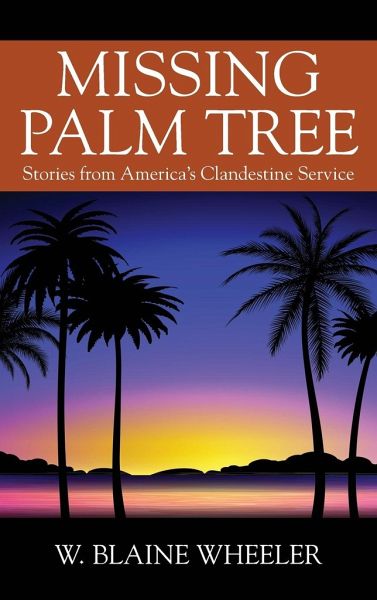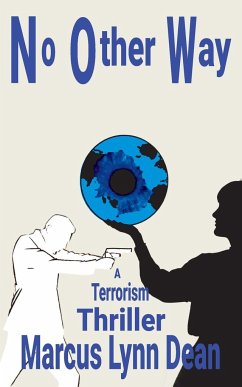
Missing Palm Tree
Stories from America's Clandestine Service
Versandkostenfrei!
Versandfertig in 1-2 Wochen
23,99 €
inkl. MwSt.

PAYBACK Punkte
12 °P sammeln!
Several decades ago, the author noticed a five sentence article buried deep in the newspaper about a government employee who had been severely wounded in the course of his work. A name, which he assumed was a pseudonym, and the town and state where the wounded man was where the only identifications given. The author wrote him a short letter thanking him for his service to our country addressed to the town and state without an address. He did not hope for a reply. The author received an equally short letter from him about three weeks later. This began a cautious - on the man's part - long-dista...
Several decades ago, the author noticed a five sentence article buried deep in the newspaper about a government employee who had been severely wounded in the course of his work. A name, which he assumed was a pseudonym, and the town and state where the wounded man was where the only identifications given. The author wrote him a short letter thanking him for his service to our country addressed to the town and state without an address. He did not hope for a reply. The author received an equally short letter from him about three weeks later. This began a cautious - on the man's part - long-distance friendship in which both, in the beginning, mainly exchanged personal information. The author slowly learned snippets of the man's childhood growing up in poverty and a few things of his later life which the author managed to incorporate into some of the short stories with the man's permission. The author learned that the man had attended two Ivy League universities as an undergraduate and graduate student earning degrees in Russian and Arabic with additional studies in international relations and political science. He also earned a Phi Beta Kappa key. Everything was always done by mail; the man never gave the author his telephone number nor his name. The man asked the author at the beginning of this correspondence to destroy all letters received from him. The author did that. The man eventually asked the author if he would be interested in writing - in any form the author might choose - about his work. He insisted that no dates, no names of the ones whom he extracted, and no dialogue be used. He also insisted that any distance and names of geographic locations be accurate. The author agreed with the man's requests. The author filled more than a dozen notebooks with the to-the-point and very terse information concerning part of his 13 year career. This took more than three years. The man approved each short story as the author wrote them. The author destroyed all the notebooks as the man requested after writing the short stories. One of the six readers which the author had asked to critique the short stories said that the stories were "too authentic to be fiction." Another reader said the details of preparation for the man's clandestine work were "almost torturous to read". One reader said that there is "a moral shock" in the reading of the short stories simply because the events involve what most people cannot fathom having happened. Yet they did not hope for a reply.












